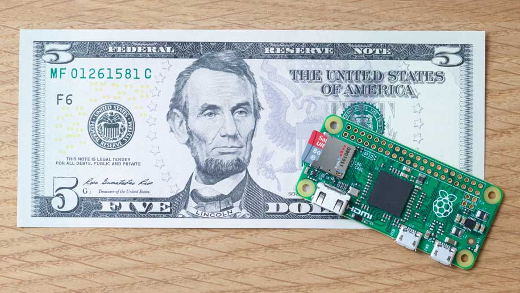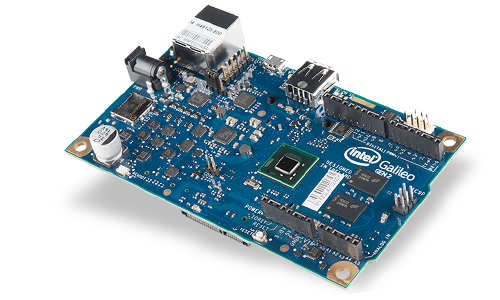https://gadgtecs.com/wp-content/uploads/2017/07/MacRobert.jpg
A miniature, low-cost computer that may encourage kids to learn to program was the concept of a small team of academics and scientists. Launched in 2012, Raspberry Pi has achieved great feats in the last 5 years since it has been on sale. More than 14 million units of the miniature-PC have been sold. Recently, it partnered with Google to add artificial intelligence, and Microsoft even made its AI work on the Raspberry Pi which will help people build smarter gadgets.
Now, the crew behind the Pi has been awarded the United Kingdom's prime engineering prize. CEO Eben Upton and Pi employees were given the Royal Academy of Engineering MacRobert Award at a ceremony held on Thursday night in London.
The Pi crew beat two other finalists, radiotherapy pioneers Vision RT and AI cyber-security firm Darktrace, to win the prize. Previous winners of the innovation award, which has been run since 1969, include Blatchford, the creators of an intelligent prosthetic limb; the crew at Microsoft in Cambridge that developed the Kinect motion sensor; the creators of the computerised tomography (CT) scanner; Jaguar Land Rover; and IBM.
[caption id="attachment_1727" align="aligncenter" width="520"] The Pi Zero - smaller & cheaper than the mainstream model - Source: Raspberry Pi Foundation[/caption]
The Pi Zero - smaller & cheaper than the mainstream model - Source: Raspberry Pi Foundation[/caption]
The Raspberry Pi team was given the award because of the role it played in helping to re-invent home computing. "The Raspberry Pi crew has achieved something that mainstream multi-national computer corporations and leading processing chip makers not only failed to do but also failed even to identify a need for," award judge Dr Frances Saunders stated.
Since the device was launched, there have been many iterations sold. The latest was Raspberry Pi Zero, which costs just $5 (and hence got the title of world's cheapest computer), has a 1Ghz processor plus 512MB RAM. The first generation had a slower processor, 256MB RAM, and was bigger and heavier. The Pi organisation is split into two components: a charitable foundation and a trading firm.
"It will be a validation of the fact that we have constructed something greater than we ever envisaged. It will also be recognition of the extraordinary community we have built around the Pi." - CEO Upton, while talking to BBC before the award.
What's extraordinary is just how successful it has turned out to be in the industry, where it is discovering a place in all types of applications, from smart signage systems to robotics. This area now accounts for almost half of all Raspberry Pi sales. Last week, it emerged that Intel had quietly cancelled 3 devices, including its Galileo (pictured below), geared toward competing with Raspberry Pi.
[caption id="attachment_2665" align="aligncenter" width="500"]
 Intel's Galileo. 1 of the device that will be pulled from the market at the end of 2017. Source: Intel[/caption]
Intel's Galileo. 1 of the device that will be pulled from the market at the end of 2017. Source: Intel[/caption]Despite all its financial success, the Raspberry Pi's core mission remains education. It has recently merged with CoderDojo, making it the biggest international coding teaching organisation.
Related: Students want to make it to orbit, and they are close! | World's Cheapest Computer - $9 | New World's Cheapest Computer - $5
In the early days, it appeared that the device appealed more to middle-aged nostalgic hobbyists than to kids, who found it hard to get to grips with something that didn't match their concept of a PC.
Now, with plentiful funds at their disposal and recognition of their engineering expertise, the Raspberry Pi organisation can step up their drive to transform attitudes towards computing.
Click here for cheaper and quality add-ons for the Raspberry Pi from AliExpress
https://gadgtecs.com/2017/07/01/the-raspberry-pi-has-won-the-uks-top-engineering-award/
Comments
Post a Comment